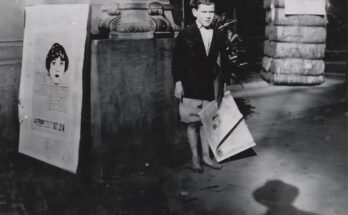Valeria Heiman was born on 6 November 1942 in the town of Sátoraljaújhely, located in northeastern Hungary, near the Slovak border. This region had a longstanding Jewish presence, and Valeria was born into a Jewish family just as the horrors of the Holocaust were reaching their most devastating phase. Her parents, Géza and Sári Heiman, welcomed her into a world already gripped by fear and uncertainty. Valeria’s birth occurred in the shadow of war, in a country that, though allied with Nazi Germany, had not yet fully succumbed to the Holocaust machinery.
For the first year of Valeria’s life, Hungary’s Jewish population remained relatively intact compared to those in Nazi-occupied territories. However, this changed abruptly in March 1944, when German forces occupied Hungary. With terrifying speed, the Nazis and their Hungarian collaborators launched a mass deportation of Jews to Auschwitz and other death camps. Within weeks, hundreds of thousands of Hungarian Jews were rounded up from their homes, ghettos were established, and deportation trains began departing almost daily.
Valeria, barely 18 months old, was caught in this storm of genocide. She and her parents were among the approximately 437,000 Hungarian Jews deported between May and July 1944. These transports were brutally efficient, with many families packed into overcrowded cattle cars under inhumane conditions. The journey from Hungary to Auschwitz could take several days, during which people suffered from starvation, thirst, heat, and sickness. For a child as young and fragile as Valeria, the experience would have been terrifying, even if she could not fully comprehend what was happening.
Upon arrival at Auschwitz-Birkenau, the Nazi guards conducted selections on the platform. Men and women were often separated, and those deemed unfit for forced labor — including most children, the elderly, and pregnant women — were sent directly to the gas chambers. Valeria, being only a toddler, had no chance of survival. She was considered “useless” by the Nazi regime’s twisted ideology, which valued only the labor potential of its victims. Her mother, Sári, chose — or was forced — to remain by her daughter’s side during these final moments.
Together, Sári and Valeria were led into what the Nazis referred to as “showers,” a cruel deception masking the entrance to gas chambers. There, among thousands of others, mother and child were murdered in cold blood with Zyklon B gas. Valeria was only a year and a half old. Her short life had known little more than fear, displacement, and suffering, and it ended in one of history’s most horrific crimes against humanity. Her father, Géza, may have met the same fate, either in the gas chambers or in forced labor, though his fate is less precisely documented.
Valeria’s story stands out not only for its tragedy but for the heartbreaking detail of her age. She was an infant — innocent, defenseless, and beloved by her parents. Her murder, along with over one million children killed in the Holocaust, represents the most profound cruelty of the Nazi genocide: the deliberate annihilation of entire generations. The death of a child like Valeria is not just a loss to her family, but to humanity itself — a future extinguished before it could unfold.
Despite the efforts of the Nazis to erase all trace of their victims, Valeria’s name survives in memorial records and archives. Her memory is preserved through institutions like Yad Vashem, which seeks to ensure that no victim of the Holocaust is forgotten. Though she lived only briefly, her life has meaning. By telling her story, we affirm that her existence mattered — that she was not just a statistic, but a human being, a daughter, a life taken too soon.
In remembering Valeria Heiman, we face the deepest sorrow of what the Holocaust wrought. Her life reminds us of the devastating cost of hatred and indifference. As we reflect on her story, we are called not only to mourn but to ensure that future generations learn from the past. Let her memory, and the memory of the millions like her, be a light that guides humanity toward compassion, justice, and the protection of all innocent lives.


